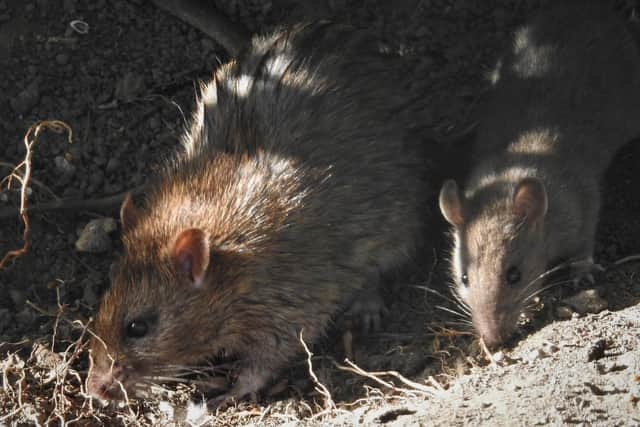Sheffield expert fears 2020 be the summer of the brown rat


The question is which species would evolve to the top of the pyramid of life?
In this scenario, a good candidate is the brown rat, or rattus norvegicus.
Advertisement
Hide AdAdvertisement
Hide AdThis is one of our most influential ‘alien’, or non-native species in Britain.


When it arrived here in about 1530AD, it managed to eject its cousin the black rat, rattus rattus, an alien species even more infamous because it brought the bubonic plague, or ‘Black Death’.
Interestingly, like many invasions of problem species and associated diseases, brown rat, black rat, and Black Death all originated in the Far East and then spread around the globe to change the world forever.
With the worst outbreaks of bubonic plague, between a third and a half of the adult European population died.
Advertisement
Hide AdAdvertisement
Hide AdThe brown rat, however, does not particularly carry bubonic plague, but does harbour rather a lot of other nasty diseases.
As brown rats came to Europe, they travelled as unofficial passengers on ships and were perhaps called ‘Norwegian rats’, because they arrived at harbours on timber ships from there.
Originally they were called ‘Hanover rats’, to associate problems in 18th-century England with the German House of Hanover.
Advertisement
Hide AdAdvertisement
Hide AdIn recent years, with hotter summers, milder winters, and probably cuts in local authority and Environment Agency pest-control operations, rats thrived – this is of course the brown rat, as the black rat is now extinct here.
I suspect this is one reason why water voles – the water rat, or ‘Ratty’ of Wind in the Willows fame - have declined along many rivers.
Unlike the non-native mink, the rat doesn’t actively hunt voles, but will out-compete them for territory.
So far this year, I have seen quite a few rats out and about – I expect 2020 to be the summer of the rat!
Professor Ian D. Rotherham is writer and broadcaster on wildlife and environmental issues.